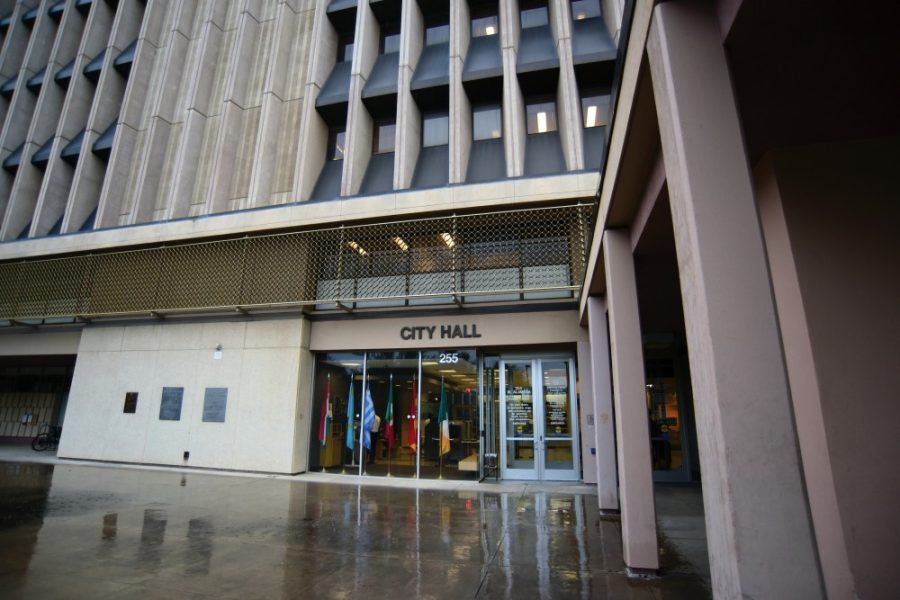Tucson voters rejected Proposition 205, meaning Tucson will not become a sanctuary city.
The proposition, which was officially titled Tucson Families Free and Together Ordinance, stated, “It is the policy of the city that the city be a sanctuary and safe refuge for all persons, regardless of race, color, ethnicity, immigration status, ability to speak English, mode of dress, religion, national origin, sex, gender identity, sexual orientation, disability, economic status, and familial or marital status.”
Had the prop passed, Tucson’s status as a sanctuary city would have been written into the city code and law enforcement would have been restricted from engaging in certain actions in determining a person’s immigration status. It also would have prohibited officers from contacting federal law enforcement agencies for immigration status and prohibited city employees from questioning a person’s immigration status.
A statement that former Mayor Jonathan Rothschild wrote to the Citizens For a Safe & Prosperous Tucson stated that Prop 205 would have prohibited the Tucson Police Department from working with federal law enforcement agencies and Tucson would lose access to the the databases: CODIS, the national DNA database; NIBIN, the national ballistics database; IAFIS, the national fingerprint database; and NCIC, the national crime database.
Citizens For a Safe & Prosperous Tucson are a group that opposed Prop 205 through the elections season.
“We have a lot of other officials other than U.S. [Immigration and Customs Enforcement] officials in our community. We have FBI agents, we have [Drug Enforcement Administration] agents, we have groups that are represented to a federal level in our community,” said Joesph Morgan, spokesperson of Citizens for a Safe & Prosperous Tucson.
Morgan said he shared Rothschild’s concern over losing access to national law enforcement databases.
“They have these nation databases that our law enforcement utilizes all the time and they work in conjunction with the federal agents,” Morgan said. “If you’re a federal agent and you have the authority to question people — to stop people — who you might suspect for one reason or another and you find out they are here illegally, you can use that to help you with what you are trying to do as well*.“
Prop 205 would also have prohibited law enforcement from asking, even if being arrested, for immigration status at a school, hospital, medical clinic, church, house of worship or court building. Anywhere else, law enforcement would have been able to ask for documentation if they can provide two reasons on why they thought a person was “suspicious,” not including: name, speaking ability, ethnicity and housing status.
The Pima County Democratic Party supported the proposition during the election season.
“I think they fought a good fight and proven there is a merit in struggling to uphold civil rights and human rights and protecting the most vulnerable among them,” said Joel Feinman, the second vice chair of Pima County Democratic Party.
According to Center of Immigration Studies, there are only nine U.S. states that hold sanctuary cities: California, Colorado, Connecticut, Illinois, Massachusetts, New Jersey, New Mexico, Oregon and Vermont.
*This quote has been updated to reflect a minor word change.
Follow Ciara Jean on Twitter









